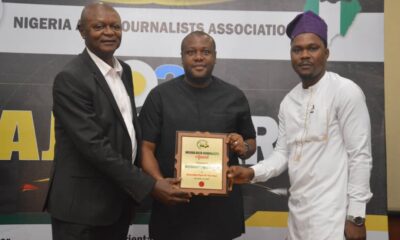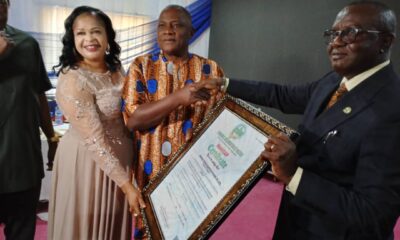Auto
My plan was to sell new SUV model for N1m – Innoson Group chairman
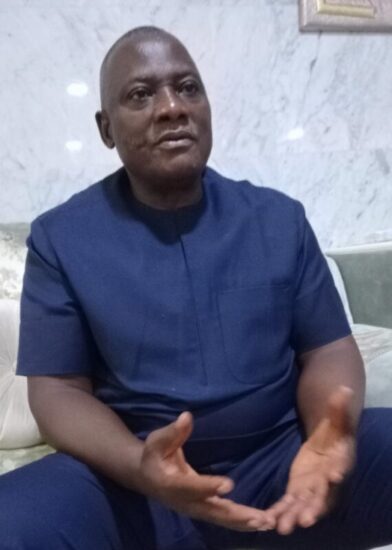
‘What I did chased tokunbo motorcycles away from the Nigerian market’
Chief Innocent Chukwuma, founder and group chairman of Innoson Vehicle Manufacturing Company, who recently marked the 13th anniversary of the auto company, spoke with some motoring journalists on a number of burning issues about the firm and the industry along with his plans for the business.
NewsTrends was there and reports:
Tell us your journey into the automobile business?
What I am doing today in auto manufacturing, I had earlier done in the motorcycle industry and succeeded. The time I joined motorcycles, there were five companies that were dealing in motorcycles. First was Leventis dealing in Honda; Yamako was dealing in Yamaha; Bolous Enterprises dealing in Suzuki; and CFAO was dealing in Kawasaki and Moblet. I brought Jianshe motorcycles (to the country) which were under me.
I studied what the big companies were doing. They were bringing 36 units of fully built motorcycles in one 40-foot container. So with the 36 units in one 40ft container, I did all the expenses on the container and their cost was very high. As a motorcycle expert, before I joined, I calculated the cost and expenditure; then, a motorcycle was N150,000 per unit. I calculated the component parts that make up one motorcycle and found out that the total cost was not up to N150,000. So I decided to go and import the motorcycles in components (instead of ready made). I listed the parts and brought them in, and used local technicians to assemble them in Nnewi. My container of motorcycle components, the same 40 feet, could carry as much 150 units in one, instead of 36 units those companies were bringing in as fully built. As a result, my own motorcycle price was lower than theirs and I sold the first consignment at N800,000 per motorcycle, while they were selling N150,000.
Clients tested it and found out that it was equally good. I did it for about five years like that without competition before others discovered what I was doing and joined. As they were joining, I found another way of making it cheaper. I opened a plastic factory in Enugu to produce the plastic components so that the price would be okay. When I started this component parts, some of them that joined started buying the component parts to sell their own. By then we had dropped the price of one motorcycle to N60,000. From N150,000 to N60,000. Those who bought my plastic components were also selling N60,000, but those who were not buying from me were selling higher. So, they bought my plastic and business was moving. That was when I said let me go into the automobile. Before I did it, people were only using second-hand motorcycles. What I did stopped the use of second-hand (tokunbo) motorcycles because the new motorcycles became cheaper than second-hand motorcycles. That was what chased tokunbo motorcycles away from the Nigerian market.
If you watch in Nigeria today, people are buying second-hand vehicles. That was why I decided to go and develop the auto industry. If not for the foreign exchange issue, that is the weak naira against the US dollar at forex, people would have been buying new vehicles at cheaper prices in Nigeria now. For instance, I planned selling one of my sports utility vehicles (SUVs) for N1 million for all to buy. But because of foreign exchange issue, the vehicle is going for N10 million now.
People that import new vehicles cannot sell at their own price and that means we are still at an advantage.
What are your challenges since you started the auto manufacturing journey of 13 years ago?
I would say the journey has been full of ups and downs. But we still managed to survive. Starting from when I was building this factory, a lot of challenges came up. Some people came to the factory and kidnapped the workers, including (Chinese) foreigners and Nigerians. They took them away and started calling me.
The second one was when GTBank wanted to shut down this place. Every Nigerian knows about it. I went to court and finally defeated them. GTBank is still owning me up to today.
When we started, electricity was very poor even though it has improved now. What about the challenges of sourcing foreign exchange? I am a manufacturer. We are in a better position than importers. This is because what we import is not everything we are using in the manufacturing of our vehicles. So we import a few items and use local materials to complete our needs. But importers of ready-made goods import 100 per cent, which means that their forex requirements are higher. So I can say that foreign exchange depends on a number of things; sometimes, you do some export and get foreign exchange. Government allocation of foreign exchange is no longer working.
How do you get funds for your projects?
Normally, banks are supposed to be sponsoring businesses, but they are not sponsoring the industries. Nigerian banks are trading in foreign exchange. They are no longer sponsoring (supporting) productive ventures, like manufacturing. Any investor that relies entirely on banks will fail because the banks will even crush him. Banks are not ready to support manufacturing. They can support people that import oil, but to support manufacturing, banks are not ready to wait, because manufacturing cannot bring that type of quick money they want on a daily basis. We are trying to manage so that we don’t need to borrow so much to manufacture.
What is the percentage of local content in your auto manufacturing, and how do you source them?
We source some of the items we use locally and we import some. For example, we produce plastic components of the vehicles like bumper, dashboard, front grille at our Innoson Technical and Industrial Company Ltd, in Enene, Enugu. We are in a position to buy any item that anybody can produce locally. We don’t need to import any of the items we can get in Nigeria.
The local content used in my vehicles are not less than 65 per cent.
But we are still importing engine and gearboxes. The country they come from depends on the model we are doing. I don’t produce tyres but when we need tyres we reach out to tyres dealers and tell them what we want.
You made an attempt at tyre manufacturing many years ago. How did it go?
National Environmental Standards and Regulations Enforcement Agency (NESREA) said we cannot produce tyres because they did not authorise it. So we shut down, despite having invested a massive part of our resources in the project and imported some heavy equipment.
Are you not disturbed that in your 13 years of existence, Nigeria has witnessed three Presidents and none of them has used IVM which is the practice in other vehicle producing nations?
I cannot say that our Presidents are not using my vehicles, because I have not checked their fleets. It is people that are close to them that will check and find out. My vehicles are in the market and anybody can buy. I cannot say they are not using it. For instance, I never knew that the Lagos State Government was using my vehicles until someone told me.
How did you get the seed money for this huge investment? Again, where do you get the steel?
On steel, I don’t produce steel. I buy from steel dealers in Nigeria. When I need steel, I tell them the size I need and sometimes, they source it locally or from outside. We have a caliper to check the millimeter to confirm the gauge. If they are not up to the quality standard, we reject them.
What are your plans for motorsports? Nigeria is big with a large market. My focus is to conquer the motor needs of people in Nigeria and beyond. The people that are doing motorsports in other places have conquered this for a long time before they joined motorsports. I will join that when I conquer the people’s vehicle needs in Nigeria.
Do you have the facility to test vehicles and what is your daily or annual production capacity?
We have the facility to test vehicles. We have that section. I do 50,000 units and with what we are building, our factory is to produce 60,000 units annually if there is demand. We don’t produce and keep because of where to keep them. But we have an installed capacity that can handle the production, if there is the need. When there is a demand, we open up the production line and employ more people. When you are producing like 10 vehicles a day; when there is demand, you can make those 10 vehicles to 100 vehicles per day. What you do is to add workers times 10. Then what will take you one hour to do, you will do it in 10 minutes. We have the capacity to produce 60,000 if there is the demand.
What capacity do you have for conversion of vehicles to CNG?
We can do conversion. Government said they brought in conversion kits, but I don’t know how or what they imported. I convert for people.
What are the advantages of CNG-powered vehicles?
President Tinubu has done Nigeria some good by removing subsidy and introducing CNG. Any day, people understand what the CNG is, they will be happy with the government. I started the production of the CNG vehicles two years before it was formally introduced following the removal of oil subsidy on May 29 by the President. As of the time the government announced the removal of subsidy on petrol and the talk about CNG as an alternative commenced, I already have up to 100 units of vehicles running on CNG on the ground, parked here in the factory. It happened that way because I knew that one day, subsidy would be removed. I have vehicles that are powered by the CNG in all the IVM models, and I also convert for people who are driving Innoson. I want to give them the advantage first because they are my customers.
What are your views about the automotive industry in Nigeria?
My view is that if everybody supports the automotive policy, it will go well. The automotive industry is the way forward and I want Nigeria to be leading the industry in Africa.
You were approached by Abia State government to supply some vehicles but you turned it down. Can you shed more light on that?
What happened was that they needed 100 vehicles and I supplied 80. I told them that the remaining 20 would be ready in 14 days. But they said they needed it immediately. Then I told them they could buy from shops. I am a manufacturer and not a trader. They said they needed the 20 units immediately; that it was for security. The governor is one of my best friends, even before he became governor. He doesn’t joke with my products and that is why if you go to Abia State today, you will see my vehicles everywhere. Even the governor himself is using my vehicles.
You also have issues with Imo State Government. Has it been resolved?
No, it hasn’t been resolved. They just seized the money for almost three years now. The amount is N2. 6 billion for 150 vehicles I supplied to them. Today, the money has gone up to N7 billion. I am in court with them.
The vision of Innoson is to conquer the Nigerian and African market. How many products have you been able to export other African countries?
I have got up to 15 contracts from different countries outside Nigeria. The reason we don’t export from Nigeria to other African countries as often as we want is because Africa does not have shipping lines that go round the continent. Sometimes, when you export to Ghana, the vessel will first carry the containers to Europe before going to Ghana. But if we have shipping lines that go round Africa, Africa has a lot of things that they can export to each other. But if you watch, getting something from other African countries is difficult. If African countries want inter-Africa trade to grow, they should have shipping lines going round Africa. Without that, trading among African countries will be difficult.
I tried to service the 15 contracts but I found out that the problem is unavailability of shipping lines to carry the consignments for them. When they run into that difficulty today, they would not come back to you tomorrow. Some of the countries I have exported vehicles to are Ghana, Sierra Leone and Senegal.
What encouraged you to look home-wards in terms of locating your assembly plant in Nnewi?
It is not that I looked home-wards. The fact is that I don’t like crowds. I think I like where traffic will not be holding me down on the road so much. That was why I decided to be here in Nnewi and Enugu. Other places like Lagos and Onitsha are filled up. So I came down to Nnewi so that it would be easy for me to coordinate.
Right now, I have two factories in Nnewi and accessing them is very easy for me. But if it is in Surulere or Apapa in Lagos, how will I go?
What is the secret of business success of the Nnewi people?
Nnewi people, starting from origin have the keys of business. Remember the late Louis Odumegwu Ojukwu, who was the leader in Nigeria even before the war. Most of our people are business people; they are used to business. Each town has something unique to them and in the case of Nnewi business is their uniqueness.
Where will Innoson be in the next 10 years?
I believe that in the next 13 years, Innoson will be everywhere in Africa.
What are your succession plans?
It doesn’t mean that I am the one doing all the job. People are doing it. And those that are doing the job are younger than me. Didn’t you see that we rewarded some of the people that started with us at our 13th anniversary event today? This is because they are very important in our business? They stayed with us for a long time and we gave out 15 motorcycles to them. I sent our factory manager to China and trained him for eight years. Besides, they are all my friends and we eat at the same table. They love me and they cannot harm me.
Can you tell us something about the new factory in Umuezena, Nnewi?
That place is 400,000 square-meter land space. One of the buildings I am putting up there is 40,000 square meters. There will be three factory buildings, bringing the total to 120,000 square meters.
Which of the IVM models is the fastest selling in your lineup?
Vehicles are like a fashion items. This year, vehicle B can be the fastest selling; next year, vehicle D will come up. We produce all to sell. You cannot say this is the fastest. Three things determine the rate: One is the price; number two is usage; and number three is the utility, like buses and pickups which are built for commercial use. All of them are doing very well. However, what we do is that anyone that is not doing well, we stop it and replace it with another model. That is why I am manufacturing.
How have your people in Nnewi felt the impact of locating your factory in the town?
Locating this factory in Nnewi is one of the good things that have happened to the South-Eastern part of Nigeria. It is bringing a lot of things here. For example, when the Federal Government decided to build an industrial hub for the auto industry, they located one in Lagos, another in Kaduna and one in Nnewi here because of this factory.
In addition, it provides employment. When I finish constructing the factory I am now building in Nnewi, I will employ another 2,000 workers and I prefer to employ people who are at home here. It is one of the good things that have happened to the people.
What are your plans on electric vehicles?
I will shock you on what I am going to do with electric vehicles. I am doing vehicles; if you want me to power with electric, I will power it with electric. If you want CNG, gas, fuel, I will do it for you immediately.
Auto
KIA, Access Bank launch special finance scheme for vehicle ownership

KIA, Access Bank launch special finance scheme for vehicle ownership
KIA Motors Nigeria in partnership with Access Bank Plc has unveiled a new finance scheme designed to increase vehicle ownership and affordability in the country.
The deal, according to a statement by the auto firm, offers flexible and affordable financing alternatives, enabling individuals, women, and businesses to own cars with ease.
The scheme features the all-new Kia Rio 2023, with repayment plans spanning five to seven years.
Marketing Manager, KIA Motors Nigeria, Omolade Akinyode, said, ”Dana Motors has been at the forefront of Nigeria’s automotive industry since 2002, providing exceptional automotive solutions and presently leading the charge for luxury electric cars, CNG cars and buses.
“Our partnership with Access Bank reinforces our commitment to supporting Nigeria’s economic growth, individuals, and women.”
She also said, ”Our core competitive edge in the auto industry is the offering of best in class vehicles at affordable prices and this retail financing scheme is a significant step towards promoting vehicle ownership in Nigeria.
”With a flexible repayment option of up to 48 months, equity contribution as low as 10% and over N6m discount and we are proud to be at the forefront of this initiative to make owning the all-new Kia Rio 2023 a dream come through for our Nigerian Customers.”
KIA stated that the car in the package, Rio 2023, is an award winning five-seater sedan, a fun car with a reputation for durability, reliability, comfort and fuel efficiency.
With safety features which include stability control, traction control, and multiple airbags, the all new KIA Rio 2023 is an excellent choice for customers who prioritize dependability in vehicle options,” it stated.
Auto
NADDC DG hails Kojo Motors for establishing CNG conversion centre in Owerri
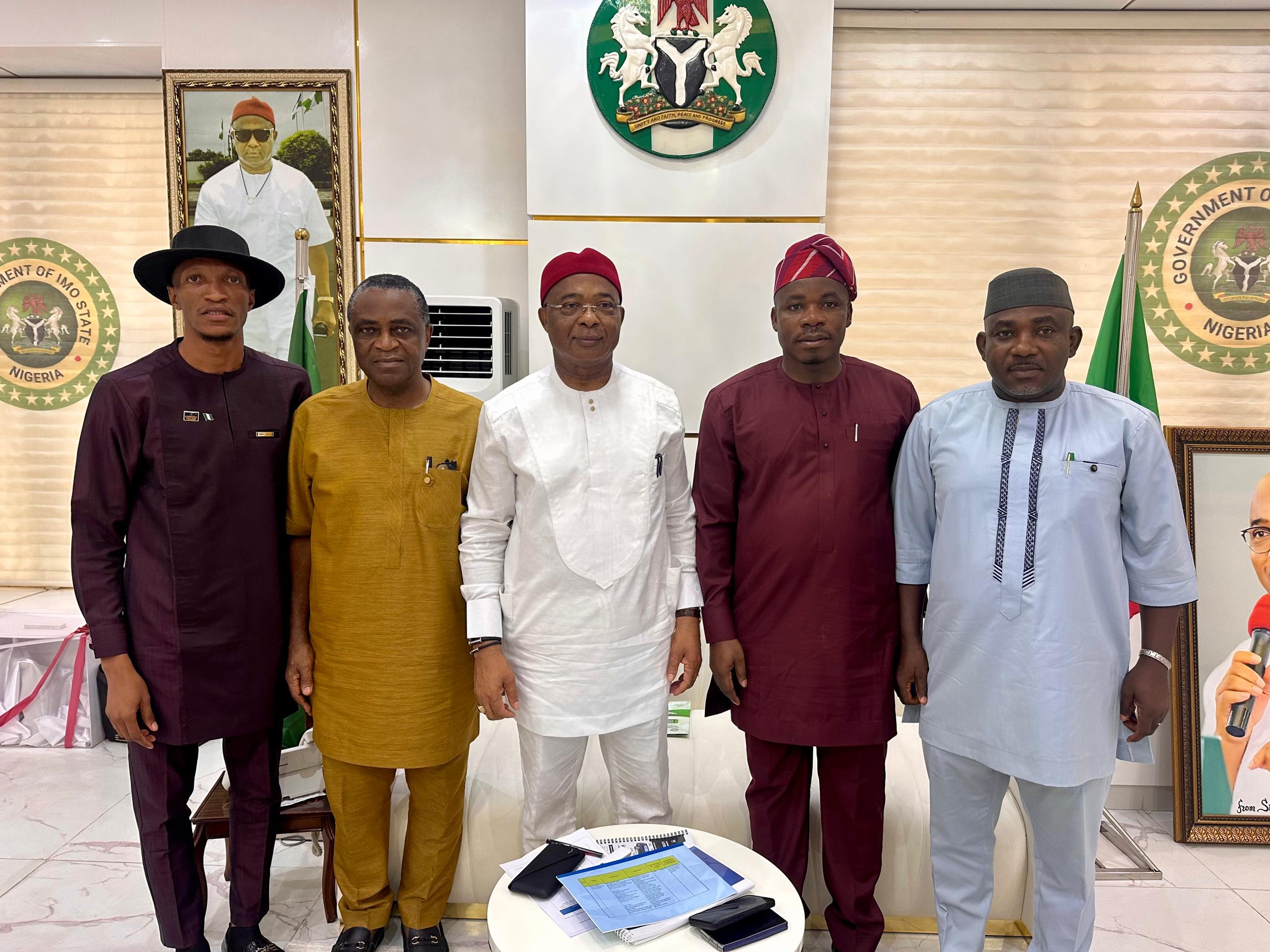
NADDC DG hails Kojo Motors for establishing CNG conversion centre in Owerri
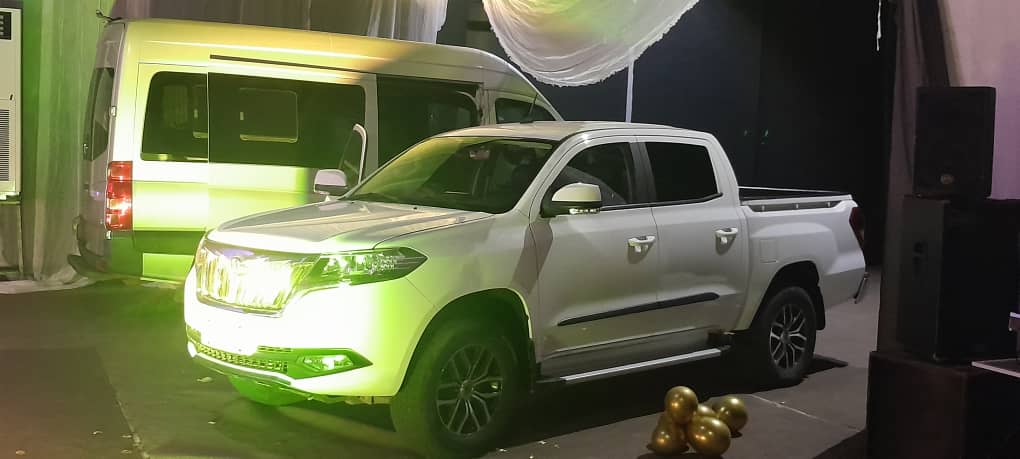
Kojo Motors has partnered the National Automotive Design and Development Council (NADDC) in setting up the vehicle Compressed Natural Gas conversion centre in Owerri, lmo State.
Director-General of the NADDC, Joseph Osanipin, during an empowerment and awareness summit on Wednesday, March 19, 2025, commended the auto firm for the monumental project.
“Today, we are gathered here for Compressed Natural Gas (CNG) Empowerment and Awareness Summit 2025 with the theme ‘Building a youth-based nation through cleaner energy’,” he said.
Osanipin said that the the purpose of the summit was to create awareness and sensitize the public to safety, standards and regulation in the use of the CNG as a better alternative source of energy for mobility.
NADDC, he said, was equipping technicians with the knowledge, skills and competencies required to safely and efficiently convert vehicles to run on CNG.
“The Council is a parastatal of the Federal Government under the Federal Ministry of Industry, Trade and Investment,” he added.
“It has the regulatory oversight on the Nigerian Automotive Industry to initiate, recommend, supervise and regulate policies and programmes for locally manufactured vehicles and components in Nigeria.
The NADDC boss noted that the Council had worked tirelessly to ensure the survival and growth of this sector with a view to enhancing its contribution to the national economy.
As part of the CNG conversion programme, 60 technicians will be receiving hands-on training in converting vehicles to run on CNG which would run for five days from the March 17 to 21,2025.
Osanipin emphasized the importance of using certified conversion kits and specialized workshops to ensure safety during the process.
“The cylinders used in CNG vehicles are fortified, making them safer than traditional vehicle fuel tanks,” he said.
Also speaking during the event, Professor Anoka Njan, representative of the Minister of Industry Trade and Investment, praised the NADDC and Kojo Motors efforts, stating that the ministry fully supported the initiative as part of broader efforts to alleviate challenges in the auto industry and empower the youth.
Imo State Commissioner for Youth Development, Dr. Emeka Mandela Ukaegbu, who spoke at the summit on behalf of Governor Hope Uzodinma, emphasised the immense potential of the CNG in easing Nigeria’s transportation challenges and improving the economy.
“CNG offers a safer, cleaner, and cheaper alternative to the hardships many face in the country,” Dr. Madela said.
The administration is partnering with NADDC and automotive industry bodies to establish conversion workshops and CNG refilling stations across Imo State, ensuring that the state plays a key role in this important shift toward greener energy solutions.
The event marks a significant step in NADDC’s ongoing efforts to transform Nigeria’s automotive industry, making it more sustainable while creating new opportunities for skilled technicians and local communities.
Chinedu Oguegbu, Managing Director of OMAA, which is the vehicle brand promoting the petrol-powered to CNG conversion project, highlighted the economic benefits of running vehicles on CNG instead of petrol.
He listed the economic advantages to include savings up to 60 percent in the cost of fuel relative to dirtier options like diesel and petrol.
According to him, there is up to 90 percent reduction in knocks and carbon emission, and it is found to be healthier, cleaner and more environmentally friendly.
Besides savings in foreign exchange (FX) with abundance of gas locally, there is also massive resources in-country over 203 tcf of proven reserves that requires no refining and relatively lower investment for processing.
Nigeria has an estimated 15-20 million vehicles in operation that can be converted to dual-fuel or bi-fuel.
The OMAA boss reiterated the crucial need to provide an alternative to existing fuel system with the abundance of CNG as an option.
Delivering his goodwill message, Chino Ogwumike, the National Sales Manager at Kojo Motors, thanked the DG of NADDC for partnering with Kojo in this laudable project in Owerri, the heartland of the South-East of Nigeria and the government of Imo State for accepting to provide the land for building the CNG hub in the state capital.
Ogwumike stated that the flourishing automotive dealership with branches spread across the country under the visionary leadership of the founder and Executive Chairman, Ikenna Oguegbu, is strongly committed to contributing its quota towards the progress and development of Nigeria’s automotive sector and the economy.
Auto
Lanre Shittu Motors offers support for EV bus design competition in universities
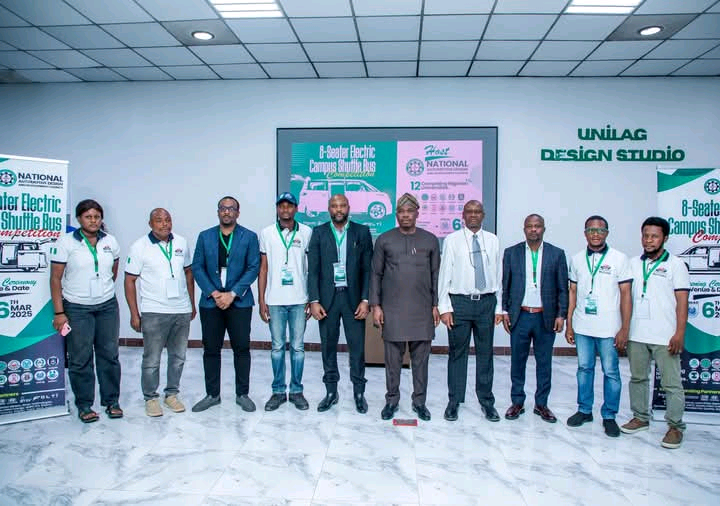
Lanre Shittu Motors offers support for EV bus design competition in universities
Lanre Shittu Motors (LSM) has thrown its weight behind the National Automotive Design and Development Council (NADDC)’s competition of building 8-seater for 12 Nigerian universities.
The universities are spread across all the geo-political zones of the country.
The frontline auto company in Nigeria is a major supporter of the competition which kicked off last week with the commissioning of eight units of EV bus shuttle at the University of Lagos, with representatives from different schools gracing the event.
The competition is expected to last for six months.
Apart from supporting the event, a technical representative of LSM is also part of the jury which is made up of auto industry players, academia and the NADDC.
Commenting on the development, the Managing Director of LSM, Mr. Taiwo Shittu, said, “We as a company like to support and encourage young talents who have interest in the automotive industry.
“It is also our own way of supporting the NADDC initiative of encouraging young brains in the country
“Encouraging and training the youths is part of our Corporate Social Responsibility. Before now, every years, we take in youths into our facility and train them, even while in training, we give them stipends, and we are still doing this.”
The MD added, “We do not stop at training and giving stipends, we also provide basic workshop tools to those we train, and employ some of them.”
The participating universities in the competition are Ahmadu Bello University, Zaria; Uthman Danfodio University, Sokoto; Modibbo Adama University, Yola; Abubakar Tafawa Balewa University, Bauchi; University of Abuja; and University of Ilorin, Kwara State.
Others are University of Nigeria, Nsukka; Federal University of Technology, Owerri; University of Benin; Obafemi Awolowo University, Ife; University of Lagos; and University of Port Harcourt.
At the commissioning event, which was held at the University of Lagos, and witnessed by auto industry operators, academia, top NADDC staff and the press, the Director General of the NADDC, Mr. Joseph Osanipin, stated that the Council would give its full support to the competition, tasking the contenders, made up of students and supported by lecturers from the concerned schools, to come up with practical and workable solutions suitable for the Nigerian environment.
He promised that the NADDC would not stop at the design stage at the end of the competition, but also take steps to involve auto players to develop the final products after the competition.
“Today, I challenge the Nigerian university community to dream big; I challenge you to do even better than our expectations. Let us have a vehicle of our dream. We are going to work with universities, polytechnics and technical schools,” the DG said.
NADDC Director in charge of Vehicle Electrification, Engr. A.N Ayinde, added that the competition would generate ideas and provide students with opportunity to embrace global best practices.
The kick-start of the competition was concluded with the inspection of some environment friendly auto brands such as electric vehicles and compressed natural gas-powered vehicles displayed by LSM.
One of the participants, Senior Vice President, Technical of Oando Clean Energy, Mr. Adeyemi Adebajo, stated that Oando is concerned about the environment and reasoned that environment, economy and society are key in sustainable transportation.
In his submission, a lecturer from the University of Nigeria, Nsukka, Prof. Ozoemena Ani, commended the initiative and pledged the collaboration of the academia.
-
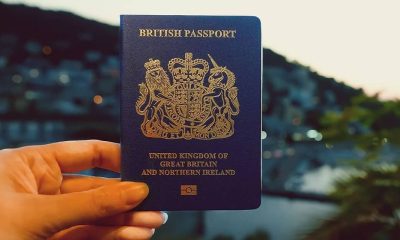
 International3 days ago
International3 days agoUK announces new passport application fees starting April 2025
-

 metro1 day ago
metro1 day ago‘We’re not hiring,’ NNPC denies viral recruitment adverts
-

 metro12 hours ago
metro12 hours agoNatasha: Court blocks recall attempt, stops INEC
-
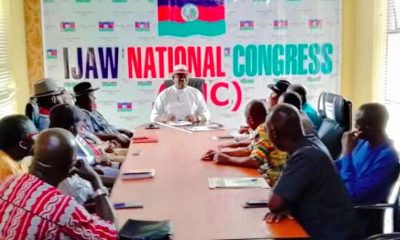
 metro2 days ago
metro2 days agoMore trouble brews in Rivers as Ijaw congress considers self-determination option
-

 metro3 days ago
metro3 days agoCourt lifts order stopping Senate probe on Natasha Akpoti
-
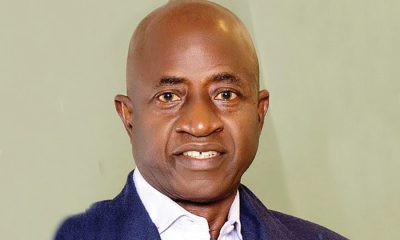
 Sports13 hours ago
Sports13 hours agoOdegbami speaks on Osimhen breaking his 44-year goals record
-

 metro3 days ago
metro3 days agoMohbad’s brother, Adura, arrested by police in Lagos
-
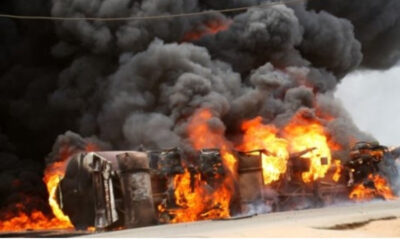
 metro3 days ago
metro3 days agoTanker explodes on Abuja bridge, many feared dead, 30 vehicles burnt



